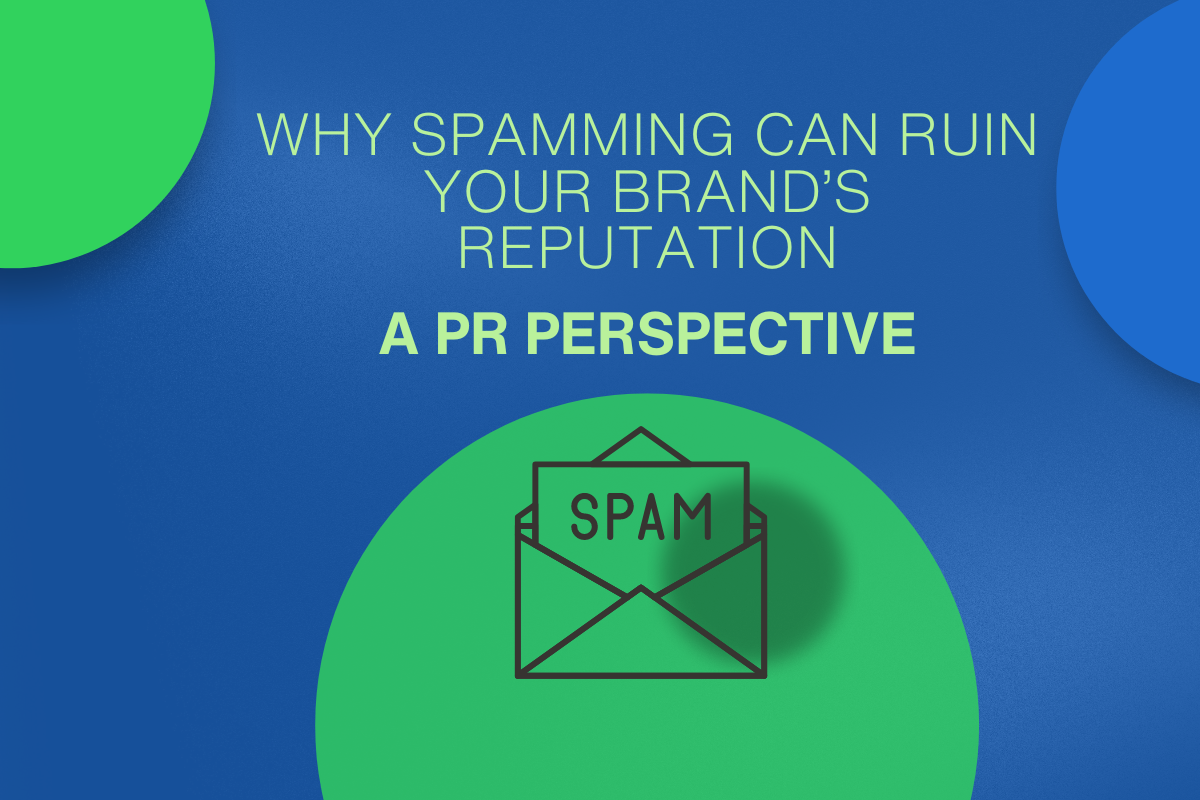In the ever-evolving landscape of business communication, it’s crucial to strike a balance between effective outreach and respecting your audience’s boundaries. Spamming, the practice of sending unsolicited messages in bulk, has become a notorious strategy that can harm a brand’s public relations efforts more than it helps.
Here’s why spamming is considered bad PR, especially in a B2B context. It involves sending numerous unsolicited messages, emails, or posts to people, often for promotional purposes. While it might seem like a quick way to reach a broad audience, this approach is fraught with risks.
Damage to Brand Reputation
Spamming is often associated with untrustworthy and aggressive marketing tactics. When a company engages in spamming, it risks being labelled as intrusive and disrespectful, which can tarnish its reputation. In the B2B sector, where relationships and trust are foundational, being perceived as a spammer can be particularly damaging.
Loss of Customer Trust
Trust is the cornerstone of any successful business relationship. Spamming can erode this trust rapidly. Recipients of spam often feel their privacy has been violated, leading to a loss of trust in the brand. In a domain where decisions are made based on reliability and credibility, losing trust can have long-term business repercussions.
Reduced Engagement and Effectiveness
Over time, audiences become desensitised to spam, leading to lower engagement rates. This means that even legitimate and well-crafted messages can be ignored, as recipients lump them together with irrelevant spam. Consequently, the overall effectiveness of marketing and communication campaigns diminishes.
Potential Legal Consequences
Many countries have stringent laws and regulations against spamming, such as the GDPR in the EU or the CAN-SPAM Act in the USA. Violating these regulations can result in significant fines and legal issues, which can be costly and damaging to a brand’s image.
In addition to global regulations, the Middle East has its own set of rules governing digital communications. For instance, in the UAE, the Telecommunications Regulatory Authority (TRA) has established guidelines to combat spam. Violating these guidelines can lead to penalties, including fines. The laws are particularly stringent when it comes to unsolicited electronic communications, emphasizing consent and the right to opt out. In Saudi Arabia, the Communications and Information Technology Commission (CITC) enforces similar regulations. These laws reflect a growing awareness and enforcement of digital communication standards in the Middle East. Non-compliance not only risks legal repercussions but also signifies a disregard for regional norms and consumer preferences, which can severely impact a brand’s standing in these markets.
Impact on Email Deliverability
Frequent spamming can lead to a company’s email domain being blacklisted, affecting email deliverability. This means even non-spam emails might not reach their intended recipients, hindering genuine communication efforts.
In PR, where relationships are built on trust and respect, spamming is a risky and often counterproductive strategy. Businesses must adopt more ethical and effective communication practices. Building genuine connections, respecting customer privacy, and adhering to best practices in digital communication are key to maintaining a positive brand image and fostering long-lasting business relationships.
If you want a free consultation on your PR and comms and you are in the B2B space, book a slot here.



